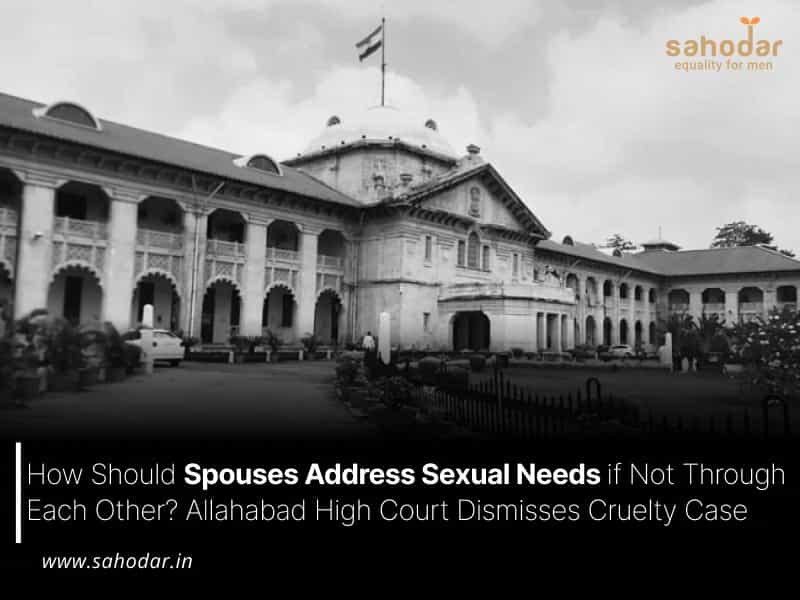The torture or any assault, if any, is meted out not for any demand of dowry but on refusal of the wife to fulfil the sexual urges of the husband, the Court said.
The Allahabad High Court recently dismissed a cruelty case filed by a wife against her husband, stating that the conflict stemmed from the couple’s “sexual incompatibility” [Pranjal Shukla and Others v. State of Uttar Pradesh and Another].
In dismissing the woman’s claims of dowry demands, torture, and unnatural sexual acts by the husband, the Court remarked,
“However, from the close scrutiny of the F.I.R. as well as the statement of the victim, the torture or any assault, if any, is meted out not for any demand of dowry but on refusal of the opposite party no. 3 to fulfil the sexual urges of the applicant no. 1.”
Justice Anish Kumar Gupta went on to state,
“…it is apparent that the dispute is with regard to the sexual incompatibility of the parties for which the dispute was there between the parties and due to the said dispute the instant F.I.R. has been lodged…”
If man would not demand sexual favour from his own wife and vice-versa, where they will go to satisfy their physical sexual urges in a morally civilized society.
The couple married in 2015, after which the woman claimed that her husband and his family began making dowry demands. She alleged that when these demands were not met, she was subjected to abuse and physical assault.
Additionally, the wife accused her husband of being addicted to alcohol and demanding unnatural sexual acts. She further alleged that he regularly watched pornography, roamed around nude in front of her, and masturbated. When she objected to his behavior, he reportedly attempted to strangle her.
She stated that her husband moved to Singapore, leaving her with her in-laws. After eight months, when she joined him in Singapore, he subjected her to further mistreatment.
A case was filed against the husband and his family under Sections 498A, 323, 504, 506, and 509 of the Indian Penal Code, 1860, along with Sections 3 and 4 of the Dowry Prohibition Act, 1961.
Feeling aggrieved, the husband and in-laws filed the current petition seeking to have the case quashed before the High Court.
The Court observed that the wife’s accusations of mistreatment by her husband and in-laws were broad and lacked specific details.
“In any of the event, no injury has ever been sustained by the opposite party no.3. Thus, from the facts of the case, in the considered opinion of this Court, by no stretch of imagination it can be said to be an offence of cruelty in terms of section 498-A I.P.C. There is no averment with regard to any specific demand of dowry made by any specific person except the general and vague allegations,” the Court observed while quashing the case.

